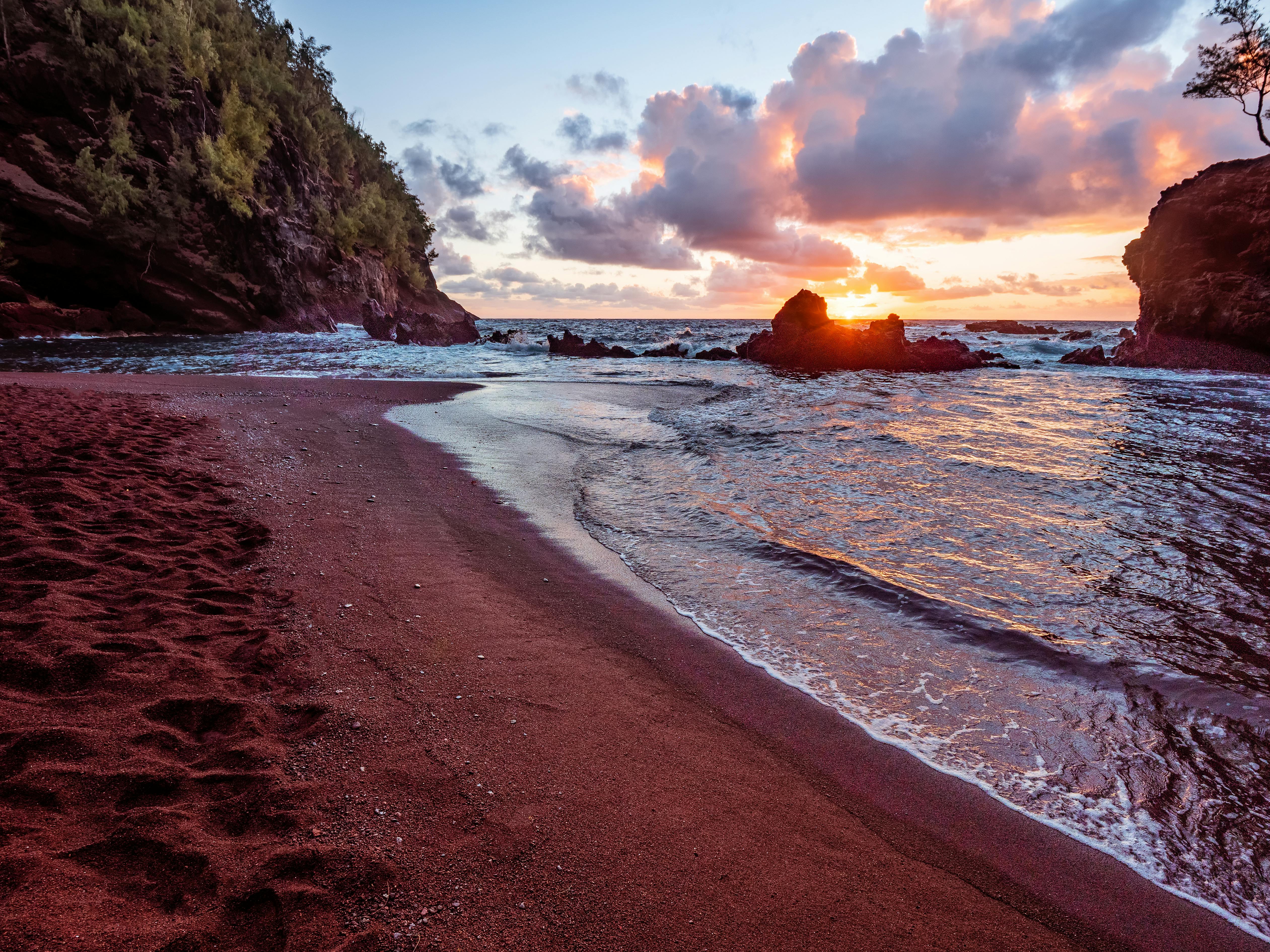
Effective Ways to Optimize Floating Sea Aquatics for Your 2025 Adventures
As our understanding of marine environments evolves, the importance of optimizing floating sea aquatics becomes paramount for both eco-friendly pursuits and adventure seekers. These aquatic landscapes not only offer breathtaking beauty but also play a critical role in maintaining the ecological balance of our oceans. With keen attention to the preservation of aquatic biodiversity and sustainable practices, future aquatic adventures can ensure the well-being of marine life while enriching the experience of explorers.
In this comprehensive guide, we will delve into effective strategies aimed at enhancing aquatic adventures in the year 2025. By focusing on aquatic plants, ocean conservation, and underwater ecosystems, readers can prepare for immersive experiences that support both personal enjoyment and marine health. From optimizing water quality to engaging in responsible activities like snorkeling tours and marine research, this article will outline crucial methods for adventure enthusiasts and conservationists alike.
The journey ahead will intersect the realms of aquatic ecosystems, recreational fishing, and aquaculture practices, paving the way for an enriched understanding and appreciation of our oceans. Key takeaways will include practical tips on marine environments, the significance of aquatic habitat protection, and highlights of our diverse oceanic flora.
Essential Strategies for Floating Sea Aquatics Optimization
Optimizing floating sea aquatics requires a combined effort to strengthen aquatic habitats and promote responsible recreational activities. Here are some essential strategies to consider:
Enhancing Water Quality Through Sustainable Practices
Maintaining pristine water quality is fundamental for thriving aquatic ecosystems. Simple practices such as minimizing plastic usage, utilizing biodegradable materials, and promoting eco-friendly boating can significantly reduce human impact on marine environments. Engaging in water-based activities while remaining mindful of waste disposal methods can help preserve the delicate balance of underwater ecosystems.
Incorporating Native Aquatic Plants
The introduction of native aquatic plants in floating systems supports a healthy habitat for marine life. These plants help stabilize the ecosystem by providing necessary nutrients and shelter. Understanding the biodiversity of underwater plants ensures that recreational areas not only attract visitors but also contribute positively to local marine life.
Engaging in Marine Conservation Efforts
Participating in marine conservation projects can be a fulfilling way to give back to the oceans. Many organizations offer volunteer programs that allow adventure seekers to engage in activities such as coral reef restoration and habitat monitoring. This hands-on involvement helps participants appreciate the intricacies of marine ecosystems and ensures that their recreational pursuits support conservation efforts.
Building on these fundamental strategies, exploring various aquatic adventures further enhances the overall experience of engaging with marine environments.
Best Practices for Underwater Exploration and Marine Tourism
As more individuals embrace marine tourism, establishing best practices in underwater exploration becomes essential for sustainability. By understanding the key aspects of responsible tourism, adventurers can enjoy their experiences while minimizing their ecological footprint.
Participating in Aquatic Education Programs
Engaging in educational initiatives about marine science enhances understanding and fosters responsible behavior among participants. Programs focusing on ocean conservation, marine biology, and aquatic biodiversity enable adventurers to appreciate the wonder of the sea while promoting ocean health. Knowledge gained through these educational experiences can lead to informed decisions during water sports and recreational fishing activities.
Respecting Marine Wildlife
Visitors to aquatic environments must learn respectful interactions with marine species. Avoiding contact with sensitive wildlife, such as sea turtles and local fish populations, ensures their safety and enhances the overall ecosystem's integrity. Observing wildlife from a safe distance during activities like diving experiences or boat trips allows for meaningful interaction without causing disturbance.
Utilizing Sustainable Water Sports Equipment
Employing eco-friendly gear during water sports significantly reduces the impact on aquatic habitats. Opting for sustainable alternatives, such as biodegradable materials and energy-efficient vessels, can help lessen the footprint left on marine ecosystems. Additionally, supporting companies that prioritize sustainability can encourage broader industry shifts toward eco-conscious practices.
With these insights into enhancing underwater exploration, the focus can shift to evaluating aquatic habitats and diverse fish species available for observation.
Understanding Aquatic Habitats and Biodiversity Conservation
Recognizing the significance of diverse aquatic habitats is crucial in achieving effective aqua conservation. Understanding the intricate relationships within marine environments can inspire passionate aquatic explorers to become stewards of marine ecosystems.
Exploring Coral Reefs and Their Vital Role
Coral reefs are essential marine habitats, teeming with vibrant fish species and supporting numerous underwater organisms. Along with providing protection to shorelines, coral reefs contribute to ecotourism and sustainable fishing practices. Initiatives aimed at coral reef restoration can help ensure these ecosystems thrive amid changing ocean conditions.
The Importance of Wetland Preservation
Wetlands serve as crucial buffers in coastal ecosystems, acting as a natural defense against erosion and flooding. Their role in supporting water quality and providing essential habitats for aquatic animals that rely on estuarine environments cannot be overlooked. Implementing wetland preservation practices ensures the ongoing health of both marine and freshwater ecosystems.
Assessing Fish Biodiversity for Healthy Ecosystems
Diverse fish populations play a pivotal role in maintaining the ecological balance within aquatic environments. Monitoring fish species helps ascertain the health of marine ecosystems while informing fisheries management strategies. Sustainable fishing practices can mitigate overfishing issues, ensuring that fish populations remain stable and resilient.
This naturally leads us to explore practical avenues available for enjoying aquatic landscapes through eco-tourism and community-based initiatives.
Engaging in Eco-Friendly Boating and Aquatic Recreation
Maximizing enjoyment of aquatic landscapes requires participation in eco-friendly boating practices and recreational activities. By becoming advocates for sustainable aquatic recreation, community members can work toward preserving fragile marine environments while enjoying the pleasures of the sea.
Promoting Community-Based Aquatic Initiatives
Supporting community initiatives dedicated to marine education and conservation engages local residents and fosters a sense of responsibility for aquatic environments. Organizing activities such as community clean-ups, aquatic education workshops, and conservation programs empowers individuals to make a positive impact on their surroundings.
Merging Adventure with Sustainability
Choosing activities like sea kayaking and snorkeling that allow for minimal disturbance of aquatic ecosystems provides an opportunity for adventure while promoting conservation. Sustainable adventures can include guided eco-tours, where knowledge about local marine life and habitats is shared, ensuring that participants have a memorable experience while fostering ecological understanding.
Ensuring Water Safety During Aquatic Activities
Safety is paramount in aquatic recreation. Adhering to safety protocols, such as obtaining proper training for water sports and wearing life jackets, contributes to a secure environment for all participants. Engaging in emergency preparedness training helps enthusiasts to handle potential situations effectively while enjoying their aquatic adventures.
Equipped with these strategies for eco-friendly boating and recreational engagement, the next focus will be on the cross-disciplinary approaches to marine research and ocean conservation.
Harnessing Marine Research for Sustainable Practices
Innovative and informed practices in marine research allow continued progress for ocean conservation. By leveraging cross-disciplinary methodologies, researchers can address complex marine challenges while enhancing understanding and practices in aquatic management.
Utilizing Technology for Marine Health Monitoring
Advancements in technology have significantly improved marine research capabilities. Utilizing tools such as environmental DNA (eDNA) sampling and big data analytics aids in assessing ocean health and fish populations. These technologies help researchers track the impact of human activity on marine ecosystems and develop informed conservation strategies.
Incorporating Community-based Fishery Management
Community-based fishery management empowers local stakeholders in decision-making processes. Collaboration among communities, scientists, and policymakers ensures that fishery regulations are tailored to local needs while promoting sustainable practices. This approach encourages active participation and shared responsibility in conserving marine resources.
Engaging in Formal Education for Aquatic Research
Marine education programs play a vital role in raising awareness about ocean health and conservation efforts. By fostering aquatic education that combines fieldwork and theoretical learning, individuals can develop a deeper respect for marine environments while identifying ways to contribute positively to their preservation.
Following our exploration of sustainable practices, here are some frequently asked questions related to optimizing floating sea aquatics for unforgettable aquatic adventures.
Frequently Asked Questions
What are some ways to improve water quality in marine environments?
Improving water quality can be achieved through sustainable practices such as minimizing pollution sources, supporting waterway conservation efforts, and regularly monitoring nutrient levels. Engaging in community clean-up events also contributes positively to maintaining healthy aquatic ecosystems.
How can I participate in marine conservation efforts as an individual?
Individuals can engage in conservation by participating in local initiatives, supporting marine organizations, and advocating for sustainable practices in their communities. Volunteering for conservation projects, such as coral restoration, is another impactful way to contribute.
What recreational activities are considered eco-friendly in aquatic environments?
Eco-friendly activities include kayaking, snorkeling, and diving, especially when conducted with a focus on minimal disturbance to marine habitats. Utilizing sustainable gear and engaging in guided eco-tours can further enhance the experience while promoting conservation.
Why is education important in marine science?
Education fosters a greater understanding of marine ecosystems and the importance of conservation. Equipping individuals with knowledge enables informed decision-making and inspires proactive environmental stewardship within aquatic environments.
What role do aquatic habitats play in supporting marine biodiversity?
Aquatic habitats, including coral reefs and wetlands, provide essential resources and shelter for a multitude of marine species. These habitats contribute to the overall health of oceanic ecosystems, and their protection is vital for preserving aquatic biodiversity.

In conclusion, optimizing floating sea aquatics is a collective effort that requires understanding, education, and active participation. By adopting sustainable practices, engaging in conservation, and enjoying eco-friendly adventures, all individuals can play a part in preserving our precious marine environments. With the strategies outlined in this guide, the path to unforgettable aquatic explorations in 2025 is clear, helping to foster a deeper connection with the ocean and its inhabitants.
